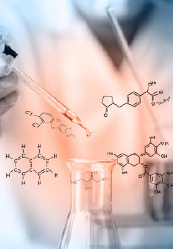Growing Urbanization and Product Launches to Drive Growth
Propylene glycol is commonly used as a food additive or ingredient in cosmetic and hygiene products. It is a colorless, odorless liquid that is a bit thicker than water. It is commonly used as an additive that plays a crucial part during the processing of foods and in improving their flavor, texture, appearance, and shelf life.
It is found in several packaged foods, such as soft drinks, drink mixes, dressings, popcorn, dried soups, food coloring, fast foods, and dairy products. Propylene glycol is used to prepare a wide range of products, including coolants, paint, aircraft deicing fluid, printing inks, heat transfer fluids, coatings, and liquid detergents, among others.
Key Dynamics of Propylene Glycol Market
The food and beverage industry is expected to benefit from rising customer preference for convenience foods due to lifestyle changes around the world, which is expected to fuel demand for propylene glycol as a food additive. Because of evolving lifestyles in both developed and developing regions, the cosmetics, and personal care industry has seen substantial growth in recent years, which is expected to drive high demand for propylene glycol.
A virtual marketplace simplifies the purchasing process for consumers. Vendors, on the other hand, may cut costs associated with physical infrastructure by selling their goods online. For the industry, this trend has helped businesses increase their profit margins while also broadening their consumer base without having to compete for a physical presence in international markets.
Regional Developments for Propylene Glycol Market
The rapidly growing automotive industry in Germany and China is expected to drive the global propylene glycol demand for automotive applications such as coolants and antifreeze, hydraulic and brake fluid, and aircraft deicing fluid to a large extent.
Furthermore, rapid industrialization and urbanization in the Asia Pacific as a result of rising population, ongoing infrastructure projects in the Middle East to boost tourism and increasing construction activities in Latin America are expected to boost the global construction industry and, as a result, the global propylene glycol demand for construction applications over the forecast period.
Government initiatives to boost infrastructure growth in countries such as Mexico, Brazil, and Mexico, among others, would boost the propylene glycol demand. Increased environmental issues have pushed for the adoption of non-conventional energy sources such as wind energy, which will contribute to the product market's continued growth.
Leading Players Operating in the Propylene Glycol Market
Diazepam does not dissolve in water as a solvent in prescription formulations such as oral, injectable, and topical formulations. The industry is now concentrating on producing bio-based propylene glycol to comply with environmental legislation or requirements.
Glycerin is used to make propylene glycol by major companies including Cargill, ADM, and The Dow Chemical Company. The introduction of such glycol is expected to have a significant impact on the global industry, ensuring a steady revenue stream over the forecast era.
Large multinational companies such as Huntsman and Dow Chemical have also announced plans to enter the market, spotting an opportunity in this lucrative market. Some of the prominent players present in the market include Propylene Glycol Market, Bio-chem Technology Group Co., Ltd., Adeka Corporation, Archer Daniels Midland Company, LyondellBasell Industries N.V., Temix Oleo S.R.L., and Royal Dutch Shell PLC.
Deep-dive Insights on Propylene Glycol Market by Polaris Market Research: https://www.polarismarketresearch.com/industry-analysis/propylene-glycol-market/request-for-sample


